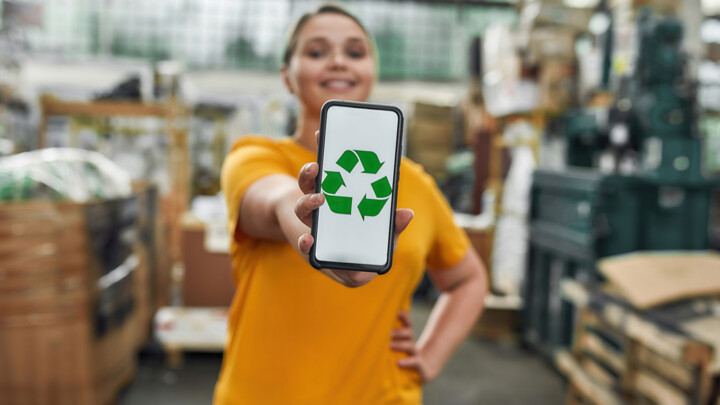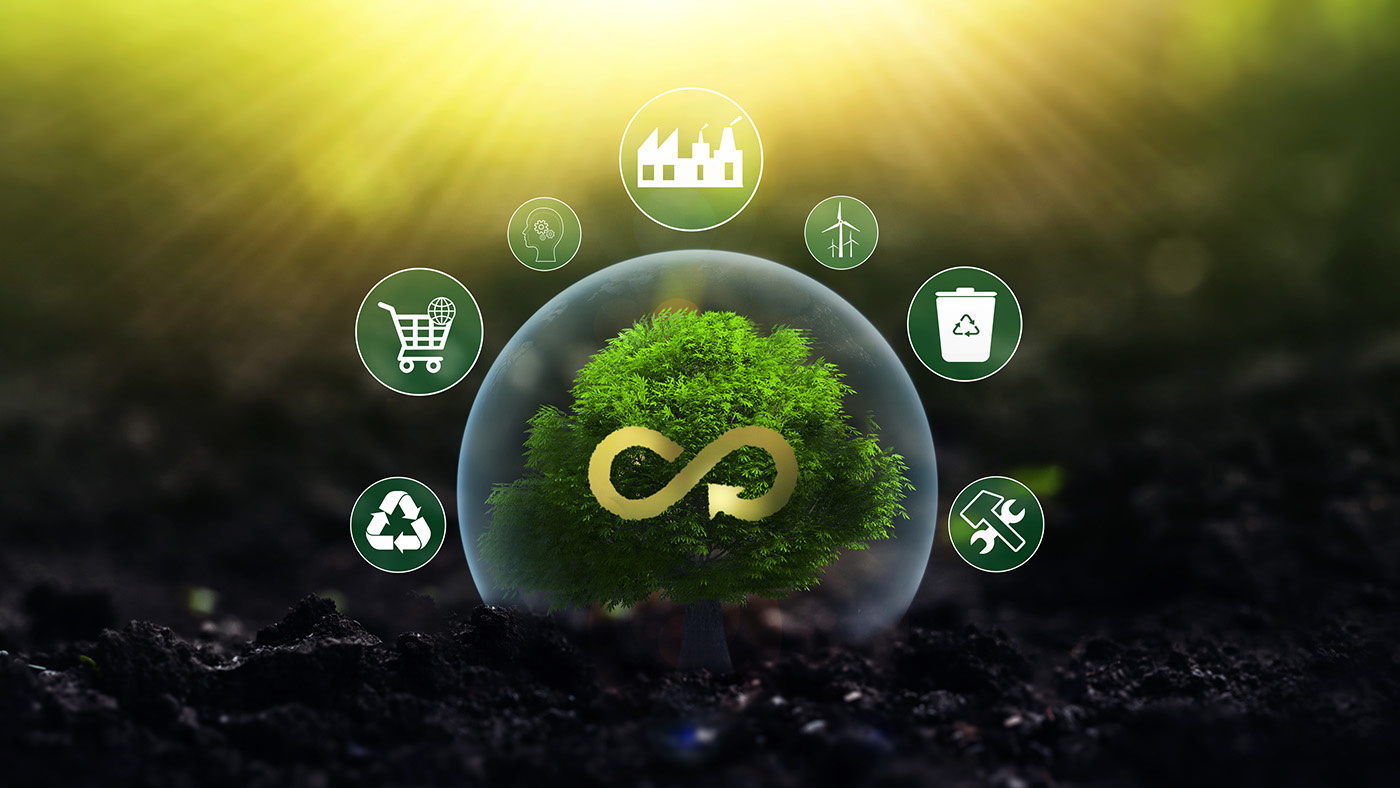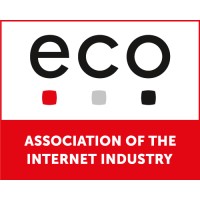Pioneering Sustainability in Refurbished Tech: A Case Study
There is huge potential lying in unused old devices, says Kamran Doorsoun from Janado. In this dotmagazine interview, he gives tips for a more sustainable use of electronics.

© LanaStock | istockphoto.com
Tatjana Hein: Could you initially give us a brief introduction to your company, Janado?
Kamran Doorsoun: Janado is the go-to platform for anyone looking for premium refurbished tech. We offer our customers first-class devices – from Apple iPhones to Samsung Galaxy smartphones. Our mission is clear: to combine quality and sustainability. In short, we make premium technology accessible to everyone and attach great importance to our responsibility for the planet.
Tatjana: What is the biggest challenge in ensuring that used laptops and similar devices are not seen as disposable products, but instead extend their lifecycle through resale?
Kamran: The greatest challenge lies in the mindset of many consumers, who often associate used products with lower quality. At Janado, this is exactly where we come in: Our goal is to change this perception and make it clear that a carefully refurbished device is virtually indistinguishable from new products in terms of performance and aesthetics. We are actively working to establish a buyback program, which will soon become a significant part of this strategy. Through this program, we can show that used devices still have considerable value. By collaborating with the right partners and approaching suitable customers, we can successfully reintegrate these devices into the market. This concept of “refurbished and sustainable” instead of “old and used” is the key to extending the life cycle of our products and strengthening the appreciation of refurbished technology.
Tatjana: How receptive are companies to IT remarketing when it comes to IT and old hardware?
Kamran: The willingness of companies to engage in IT remarketing is increasing as they recognize both the environmental and economic benefits. For example, the Covid-19 pandemic has prompted many companies to upgrade their IT hardware. Therefore, in the next 1-2 years, aligned with the typical replacement cycle of 2-3 years for smartphones and 4-5 years for laptops, we expect an increased supply of devices for remarketing. This will not only reduce costs for companies, but also significantly improve their environmental footprint. By refurbishing and reusing these devices, we offer a sustainable solution for the growing amount of IT hardware, which is ultimately a win-win for the environment, companies and consumers alike.
Tatjana: How will the market for used tech gadgets and IT devices evolve in the future, and how will you work on any related challenges?
Kamran: The market for used tech gadgets and IT devices will grow significantly in the future, driven by growing environmental awareness and economic considerations. A key factor in this development is the ‘Right to Repair’ movement, an issue that we passionately pursue. We are committed to making it easier for manufacturers to repair their devices, which would improve the longevity and ease of maintenance and thus increase the sustainability and availability of products in the refurbished market. We are targeting our positioning in the context of increasing market segmentation, particularly with the emergence of new major players. Our focus is on a younger customer base, to whom we offer quality and comprehensive service. Our goal is to provide everything our customers are looking for – and to establish ourselves as a leading one-stop shop for premium refurbished technology.
In our industry, the challenge is to offer high-quality and sustainable tech products. In addition to using the ‘Right to Repair’ to improve the repairability of products and extend their lifespan, we are also responding to current economic conditions. This includes issues such as inflation, which are driving customers to seek more cost-effective alternatives. We are working on flexible solutions such as rental, leasing, and trade-in options to meet these needs while maintaining our commitment to sustainability.
Tatjana: Which digitalization topics are particularly important to you?
Kamran: At Janado, we are pursuing a clear course in digitalization: we are continuously investing in the development of our own IT infrastructure. We are doing this with the aim of making our processes relating to the central merchandise management system more efficient, flexible, and dynamic – and therefore future-proof. A key element of this is the use of artificial intelligence, particularly for automated pricing. This technology enables us to always offer optimal prices and therefore contributes to first-class customer experiences in our B2C and B2B segments.
Tatjana: What opportunities does digitalization offer us in the future?
Kamran: For us at Janado, digitalization is not just a reality, but a key driving force: it opens up significant opportunities for us and the entire industry. By optimizing and increasing the efficiency of our processes, it promotes accelerated development. This efficiency enables our team to grow dynamically and to focus on rapid learning processes and the continuous improvement of our business processes. In doing so, we can optimize the use of our staff without having to significantly increase our headcount.
Kamran Doorsoun is Head of Marketing at Janado: With more than 10 years of experience in marketing, Kamran is the driving force behind Janado’s brand strategy. His goal is to tell authentic stories that convey the message that sustainable consumption through refurbished products is not just a ‘green’ alternative, but must be an integral and trend-conscious part of youth culture. His work focuses on engaging the younger target group in particular and convincing them that technology can be both modern and environmentally friendly. Kamran emphasizes authenticity in communication to genuinely highlight the sustainable aspects of Janado’s business model and to clearly differentiate it from misleading greenwashing.
Tatjana Hein is Project Manager IoT and Mobility at eco – Association of the Internet Industry. She is responsible for topics related to the Internet of Things like smart factory, smart city, smart home, and for the subject area of mobility. Before joining eco in 2020, she was a content manager and creator at a European analytics provider and was also a guest author for several magazines (such as Big Data Insider, Website Boosting, UPLOAD magazine, marconomy, Contentbird). Before that, she worked in an agency as a public relations manager for several start-ups.
Please note: The opinions expressed in Industry Insights published by dotmagazine are the author’s or interview partner’s own and do not necessarily reflect the view of the publisher, eco – Association of the Internet Industry.






